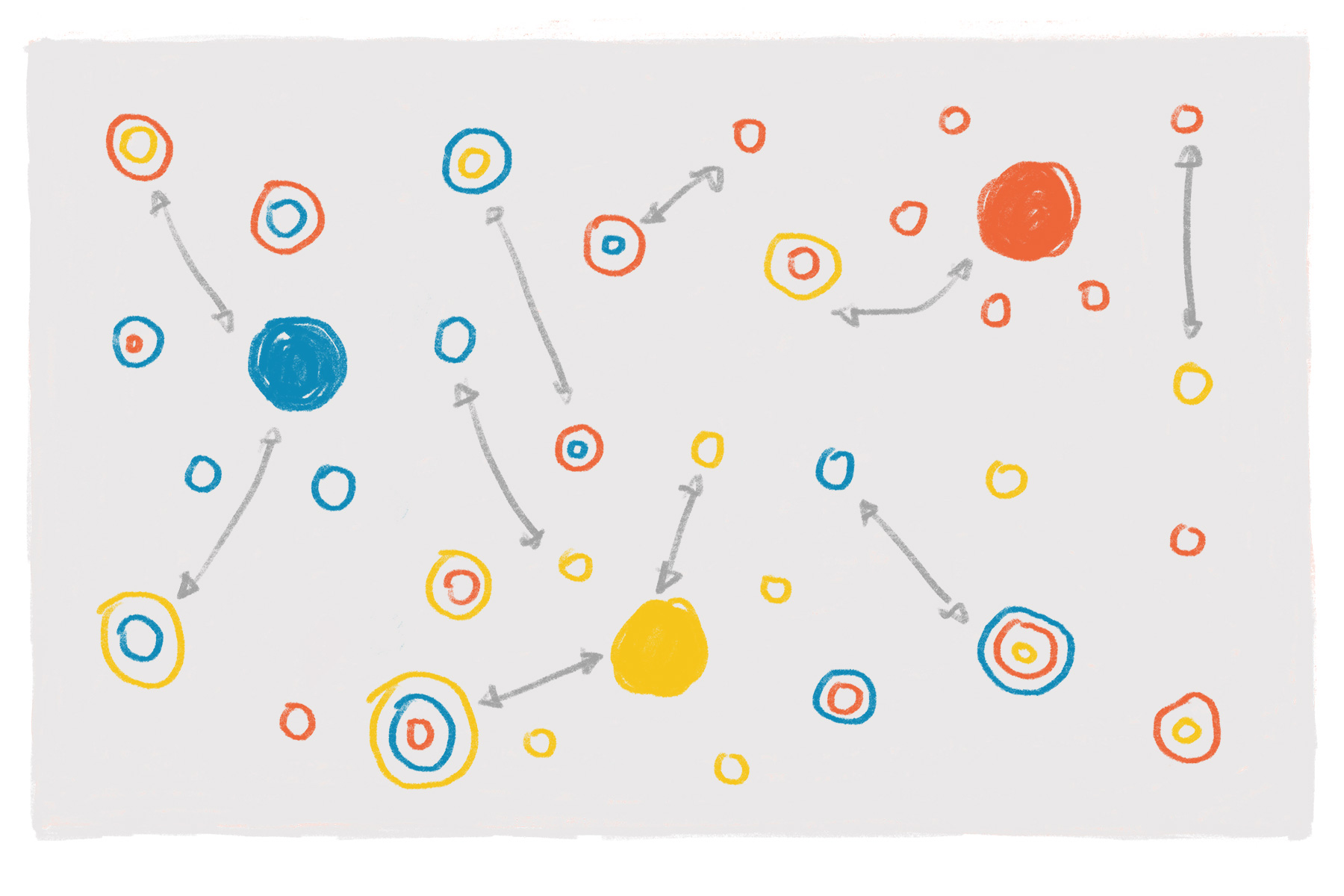Tokenizing Memberships
What if there was a new way to interact with the communities you are part of?
The web needs a new business model — one which doesn’t erode people’s privacy or centralize control into the hands of a few powerful entities.
Luckily, the web is resilient, reliable, and really, really good at lots of things. Here’s one example: it’s great at creating communities.
Today we’re all members of dozens of communities online, from the obvious ones like our own social circles or neighborhood groups, to the less obvious ones like the people we follow and the apps we use. For example, I read Macbidouille in my feed reader and use Medium on my phone as I commute: I’m an implicit member of those communities, even if I don’t wear a badge that says so.
I’m even the creator of a few communities too. Admittedly they are small, but they are communities nonetheless. There are the people who follow me on Twitter, for example, or the readers of my blog, or those who watch our work on Github.
At Unlock, we want to help your participation in those communities — your memberships — mean something. We want to give you more control over them.
At Unlock, we want to help memberships materialize.

What does that really mean?
Today a lot of these memberships are locked inside proprietary databases: my Medium membership, my Twitter graph, or the Github stars on our repository.
In some cases, the membership is portable—my RSS feed reader allows me to export these subscriptions to another reader, for example. But often the membership is abstract or invisible: there is no easy way to represent “people reading my blog.” It’s very hard to turn these memberships into something anyone can see, let alone use.
And that’s what it means to make them materialize.
We think that Unlock can make these memberships real. It can turn them into something reusable, programmable, and monetizable.
Membership as a token
How do you manage that? Well, you could build a service that keeps track in a huge database. That’s kind of what we have today across many of the large social media services. But it would have problems—it does have problems. There is a single point of failure, it’s not interoperable by default, and whoever manages it can arbitrarily change how it works. It’s not very web-like, and it’s not acceptable.
Fortunately it doesn’t need to work that way any more. We now have fully permission-less, distributed, and unstoppable databases: blockchains. The most famous one, Bitcoin, provides a secure ledger for its own currency. But there are many others out there too, storing data—what we call tokens—for everything from money, like DAI, to gaming items like CryptoKitties. (These are what we call Non Fungible Tokens.)
We think tokens can be used to represent memberships.
What happens then?
Once a membership is a token, you can do lots of interesting things with it. For example, the fact that I’m a paying member of Medium could be re-used by another application to grant me access to some kind of exclusive preview. Medium doesn’t need to give permission for that to happen.
If you push that a bit further, when several creators put the same lock on their work, they have created a bundle: a single key can unlock content or features in a lot of different places, and they can then split revenues in any way they want.
The keys themselves can have multiple purposes: the fact that you follow Unlock’s Github account could mean you automatically get invited to our launch party. And, if it’s a token, it doesn’t matter whether Github decides to suddenly remove its ⭐️ feature: tokens mean you would still be a member of our loyal developer community.
You could also use these tokens to transfer memberships to somebody else, or even to burn the membership itself.
It’s not (just) about the money
Memberships are powerful things. They can be about social status, showing support, or just belonging. And they can include financial elements too. Many people proudly show their love for a brand by showing the logos on their clothes, their cars, their laptop. Non-profits realized a long time ago that getting somebody to wear a colored ribbon 🎗 was sometimes as powerful as getting a donation from them. And sports teams are already experts at monetizing their relationships with members by selling hats, jerseys, and gear with the club colors.
Because Unlock is underpinned with the Ethereum blockchain, it means that payment is already built into the infrastructure: the currencies, the wallets, and the exchanges already exist to make it easy for members to purchase or sell their memberships.
Monetizing through Membership is a much better alternative than monetizing through attention. By becoming a paid member, the consumer makes an explicit choice about what kind of community they want to be part of, what kind of work they want to promote, rather than being passively pulled away from things that matter.